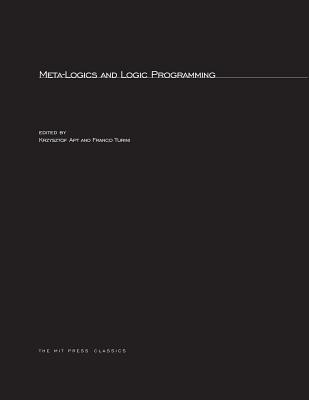
- We will send in 10–14 business days.
- Publisher: MIT Press
- ISBN-10: 0262511681
- ISBN-13: 9780262511681
- Format: 21.6 x 27.7 x 2 cm, softcover
- Language: English
- SAVE -10% with code: EXTRA
Meta-Logics and Logic Programming (e-book) (used book) | bookbook.eu
Reviews
Description
Investigating meta-programming within the logic programming paradigm, Meta-Logics and Logic Programming presents original research on an important extension of logic programming that makes it more amenable for knowledge representation and programming in general. The 12 contributions, many written especially for this book, explore the foundations, language design issues, and applications of meta-programming in logic programming. Meta-programming--the process of writing computer programs that can manipulate representations of other programs--has been key both in the foundations of computer science and in its practical developments. Examples of meta-programs include compilers, interpreters, program analyzers, and partial evaluators. The choice of logic programming as a basis for meta-programming offers several practical and theoretical advantages: among them, the possibility of tackling critical foundational problems of meta-programming within a strong theoretical framework, and the surprising ease of programming. The usual framework of logic programming (and more generally first-order logic), however, has to be modified and extended to formally deal with meta-programs, extensions the editors call meta-logics. Along with an exploration of meta-programming in logic programming, the definitions, formal properties, and use of these extensions constitute one of the book's main themes. The first part of the book, Foundations, focuses on the representation problem--how object programs are represented within meta-programs. The second part, Language Support for Meta-Logics, is concerned with language extensions that make meta-programming easier and more elegant. The third part, Meta-Logics for Knowledge Management, deals with the use of meta-logic for advanced knowledge representation purposes.
EXTRA 10 % discount with code: EXTRA
The promotion ends in 20d.22:33:29
The discount code is valid when purchasing from 10 €. Discounts do not stack.
- Publisher: MIT Press
- ISBN-10: 0262511681
- ISBN-13: 9780262511681
- Format: 21.6 x 27.7 x 2 cm, softcover
- Language: English English
Investigating meta-programming within the logic programming paradigm, Meta-Logics and Logic Programming presents original research on an important extension of logic programming that makes it more amenable for knowledge representation and programming in general. The 12 contributions, many written especially for this book, explore the foundations, language design issues, and applications of meta-programming in logic programming. Meta-programming--the process of writing computer programs that can manipulate representations of other programs--has been key both in the foundations of computer science and in its practical developments. Examples of meta-programs include compilers, interpreters, program analyzers, and partial evaluators. The choice of logic programming as a basis for meta-programming offers several practical and theoretical advantages: among them, the possibility of tackling critical foundational problems of meta-programming within a strong theoretical framework, and the surprising ease of programming. The usual framework of logic programming (and more generally first-order logic), however, has to be modified and extended to formally deal with meta-programs, extensions the editors call meta-logics. Along with an exploration of meta-programming in logic programming, the definitions, formal properties, and use of these extensions constitute one of the book's main themes. The first part of the book, Foundations, focuses on the representation problem--how object programs are represented within meta-programs. The second part, Language Support for Meta-Logics, is concerned with language extensions that make meta-programming easier and more elegant. The third part, Meta-Logics for Knowledge Management, deals with the use of meta-logic for advanced knowledge representation purposes.


Reviews